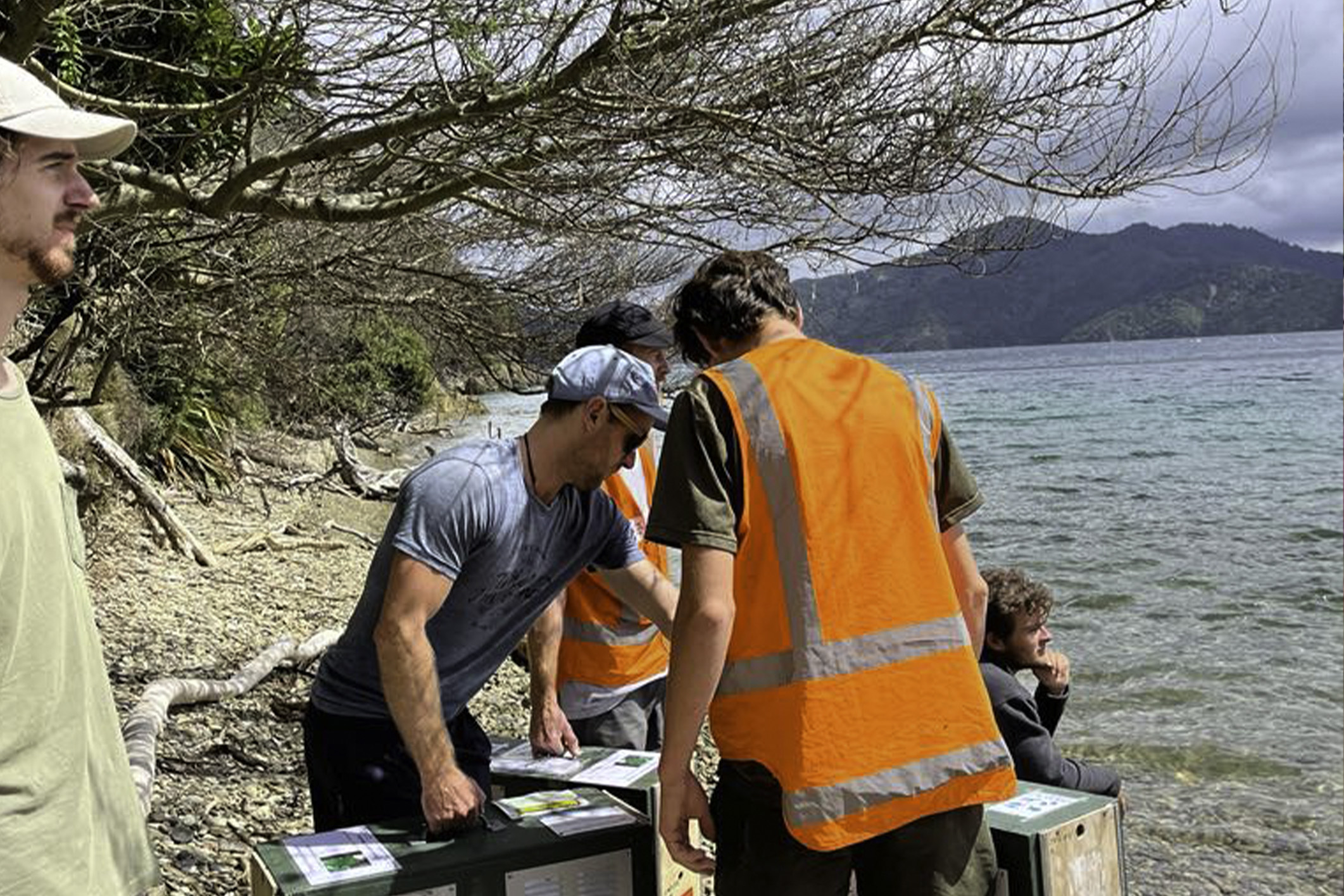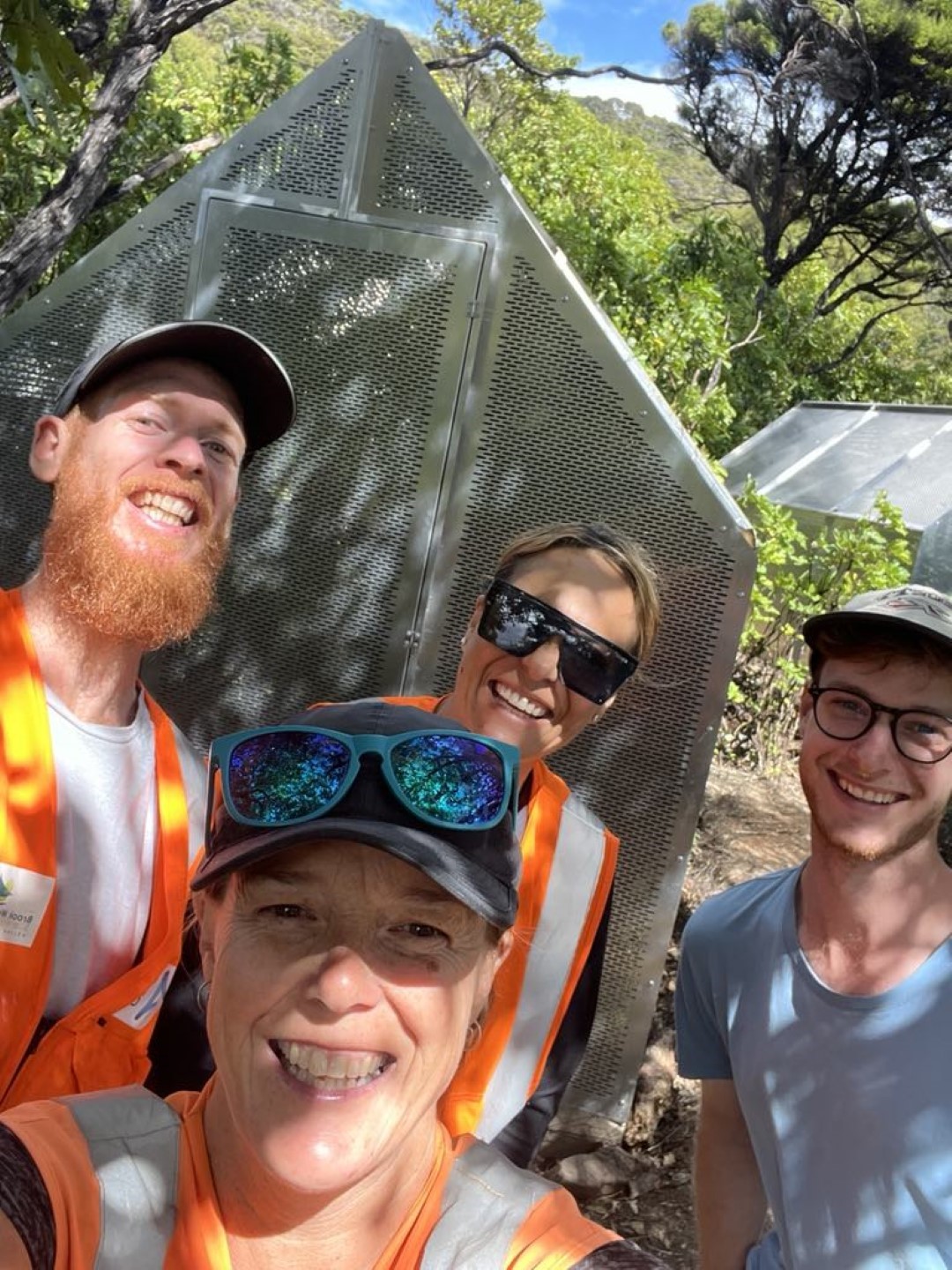
Fay McKenzie, conservation tutor at NMIT, says the trainee rangers frequently visit the island to assist Department of Conservation (DOC) Picton with mahi on the island. It’s a chance for the learners to experience a week working ‘back country’ - where they are without any services or facilities.
“We clear walking tracks and traplines, check traps, build steps, control weeds, basically whatever needs doing,” Fay says.
Given that Oruawairua is a predator-free island, learners go through a thorough biosecurity check before they go. They can also see first-hand the result of conservation work here in New Zealand.
“We see heaps of saddleback, kiwi and loads of birds, geckos and invertebrates like wētā and marine life,” Fay says. “It’s awesome.”

This year, the trainee rangers were on the island during a very special release of kākāriki karaka (native orange-fronted parakeets) and were able to assist the DOC team and associates.
“The manu (birds) arrived by boat in boxes with four birds per box,” Fay says. “We transported them up to the top of the island and released them into an aviary. A couple of days later we released them into the wild.”
Fay says it was a magical experience for all involved.
Kākāriki karaka, New Zealand’s rarest mainland forest bird, is a critically endangered parakeet species about the size of a korimako (bellbird).
Once commonly found throughout New Zealand, there are now only populations in Hawdon Valley and the Hurunui South Branch in Canterbury, Oruawairua/Blumine Island in Marlborough, and the Brook Waimārama Sanctuary in Nelson. The species has twice been declared extinct (in 1919 and 1965) before being rediscovered in the late 1980s.
More information about the release of the Kākariki can be found on the DOC website.(external link)
Learn more about our conservation programmes(external link).


